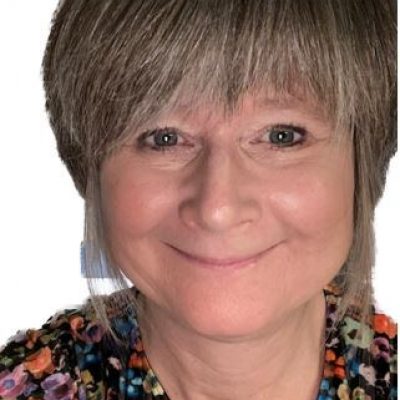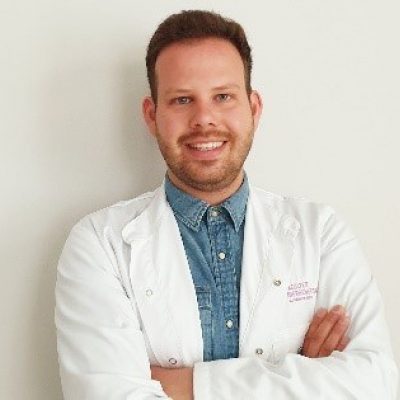Event ‘My hero and me’ webinar 3: From phage components to antimicrobials
We are proud to announce the next ‘My hero and me’ webinar format where a junior scientist and his/her hero give a joint webinar on their topic of interest. This time Niels Vander Elst (Ghent University, KU Leuven) and prof. dr. Lone Brøndstedt will present the webinar entitled “From phage components to antimicrobials” on Thursday May 25, 2023, at 4:30 – 5:30 pm ((GMT+1:00) Brussels) via Zoom.
Expect a contemporary view from Niels and his hero Lone on their overlapping expertise.
With this initiative we aim to stimulate young researchers to get into contact with their scientific hero who is an inspiration source for their daily research, and to present jointly a seminar on their common topic. Simultaneously, we offer all of you an attractive webinar format to start or finish your working day.
Looking forward to meeting you online!
Abstract Lone Brøndstedt
The emerging pandemic of antimicrobial resistance is threating humanity by affecting development and public health worldwide. Thus, it is crucial to ensure a broad range of treatment options for the future, rethinking the concepts towards biological and sustainable solutions. Phage components may offer the opportunity to develop new diverse and complementary antimicrobial solutions. Endolysins are such phage encoded enzymes showing promising antimicrobial activity due to the ability to degrade the peptidoglycan of bacteria leading to cell death.
In my talk, I will discuss three phage-based approaches we have used to develop diverse antimicrobials targeting Gram-negative bacteria. I will present the concept of Innolysin combining the enzymatic activity of endolysins with host binding specificity of phage receptor binding protein to specifically target E. coli, Campylobacter or Salmonella. Furthermore, I will discuss how we have modified natural occurring bacteriocins resembling phage tails to efficiently target and kill Campylobacter and Salmonella. Finally, I will discuss the prospects of transforming tailed phages into headless phages developing a versatile platform for engineering of phages into novel antimicrobials with custom made killing spectrum. During my talk, I will touch upon the importance of teamwork, how to build a research group and the power of open research.
Abstract Niels Vander Elst
Livestock farming is one of the major consumers of antibiotics today. This (ab)use of antibiotics is increasingly questioned by rising consumer’s awareness, resulting in new governmental policies to phase-out especially the critical antibiotics from animal agriculture. This also applies to the dairy industry that uses antibiotics to treat and prevent udder infections in dairy cows. As a result, a need to develop new antimicrobials for the dairy sector is increasingly present. Bacteriophage-derived enzymes such as endolysins are one of the major antimicrobials currently under development. In this work, tens of thousands streptococcal endolysins were rapidly VersaTile assembled, which were subsequently high-throughput screened and hit-to-lead selected for activity against the major udder pathogens Streptococcus uberis, a- & dysgalactiae. Furthermore, we have selected one final top candidate that overcomes the current limitations of antibiotics, as it kills inside the bovine mammary epithelium, eradicates biofilm and potentiates the narrow-spectrum antibiotic cloxacillin in mastitic milk derived from S. uberis-infected cows. We subsequently showed that our top candidate potentiates in a dose-dependent way cloxacillin treatment in a S. uberis mouse mastitis model by reducing the number of propagating bacteria, corroborated by a decrease of the hallmarks of mastitis and pro-inflammatory mediators.
Please register in advance for this meeting.
After registration, you will receive a confirmation email containing information about joining the meeting.
Are you the next young scientist giving a seminar with your scientific hero? Contact us and we will help you to set up your own ‘My hero and me’ webinar! It is an excellent opportunity to get in touch with your hero and it may be the start of a new collaboration.
Speakers

Lone Brøndsted
Lone Brøndsted is Professor in Phage biology and Biocontrol for food safety at the University of Copenhagen, Denmark and has a MSc in Chemical Engineering and Public Governance as well as a Ph.D. in Molecular Microbiology. Her current research focuses on in-depth analysis of phage biology, phage-host interactions and exploiting the antimicrobial potential of phages and phage proteins for novel approaches to combat pathogenic bacteria. She works closely with relevant industries for implementing such novel approaches and phage biocontrol targeting foodborne pathogens as well as human and animal pathogens. She is current president-elect of the International Society for Viruses of Microorganisms (ISVM).

Niels Vander Elst
Niels obtained a master’s degree in veterinary medicine in 2018 (Ghent Uni., Belgium). During his last year as an undergraduate student, Niels was granted an internship in the Nilsson-group where he first worked with bacteriophage-derived endolysins (Stockholm Uni., Sweden). Shortly thereafter, Niels was awarded a fellowship from the Belgian American educational foundation to start his own research project at an American university. Niels initiated his PhD in the Nelson-group (Uni. of Maryland, USA) by investigating and engineering endolysins as promising antimicrobials to tackle streptococcal infections in the cow’s udder. Upon termination of his research stay in the USA, Niels received additional personal funding (FWO Vlaanderen, Belgium) to finish his interdisciplinary PhD project as an interuniversity collaboration between the Lavigne- (KULeuven), Briers- and Meyer groups (UGent). Niels filed two patents during his PhD, of which one was selected as finalist for ‘Invention of the Year’ by the Uni. of Maryland. Niels has recently received a postdoctoral fellowship from the ‘Kronprinsessan Lovisas förening för barnasjukvård / Stiftelsen Axel Tielmans minnesfond’ to continue his work on streptococcal endolysins at the Karolinska Institute (Stockholm, Sweden).
